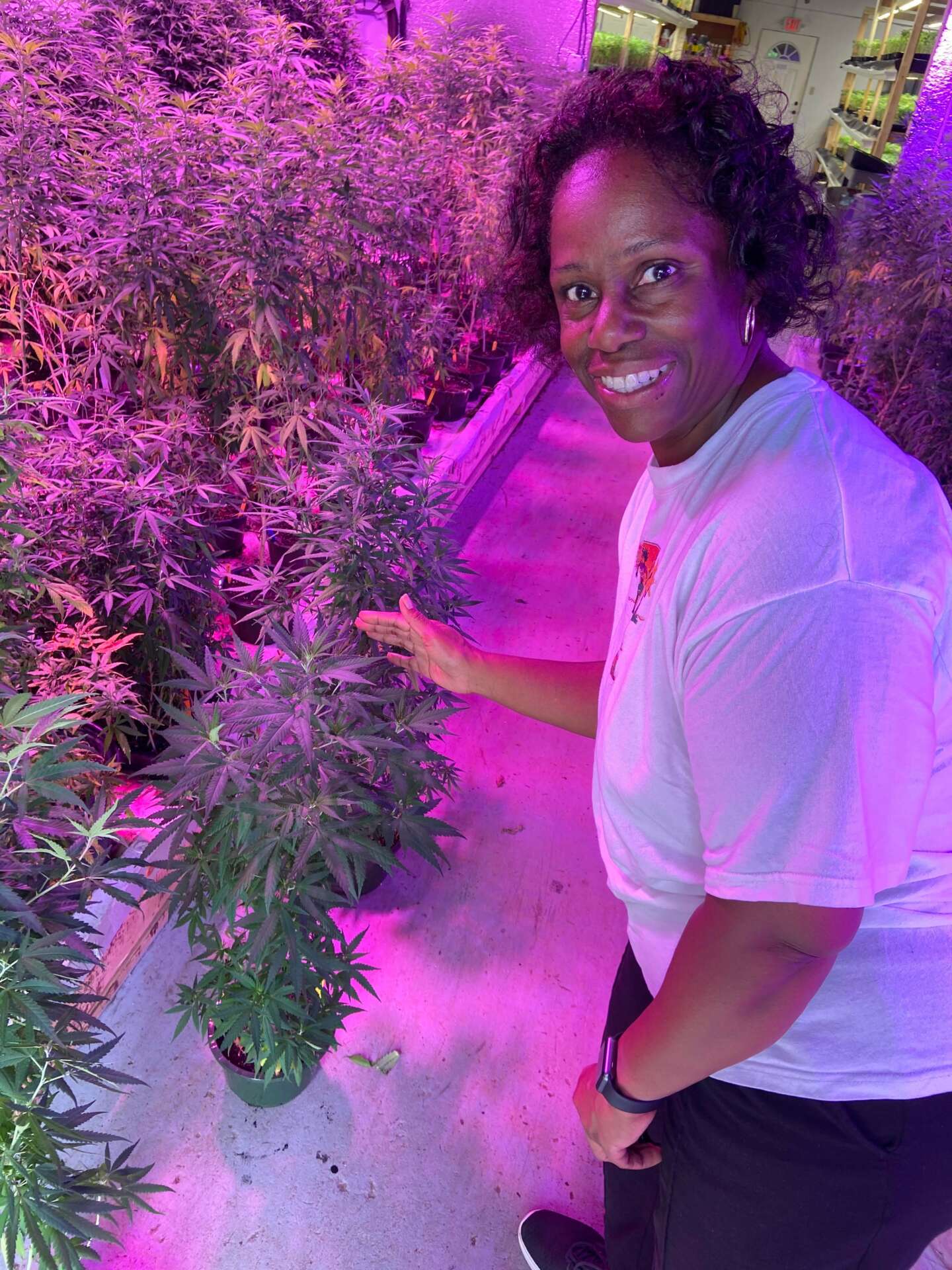We were lucky to catch up with BARBARA SHARPE recently and have shared our conversation below.
BARBARA, thanks for joining us, excited to have you contributing your stories and insights. Can you open up about a risk you’ve taken – what it was like taking that risk, why you took the risk and how it turned out?
In my opinion the decision to become an entrepreneur is one of the biggest risks anyone can decide to undertake. For me the decision to transition from a full-time position to one involving the navigation of a landscape of uncertainty is truly a risk. One that not many people are willing to take.
When we began this hemp journey in 2020, it was a new product idea in the state of Georgia. Although, for many states, such as Colorado, Virginia, North Carolina, they had been growing hemp for a number of years and had developed mature programs. This was not the case here. There was very little information being shared between the state agencies and what was shared often was not accurate. The state was implementing regulations as the need arose. So as a new licensed grower who had no previous experience in growing hemp, we experienced a lot of uncertainty due to a lack of credible information and guidance.
Prior to beginning this journey, we conducted our research to understand the benefits and usage of this plant. The more information we obtained the more confident we were in our decision to take a chance on this emerging industry. The first couple of years have been challenging and have provided us with a lot of growth opportunities. Initially we had no dedicated water source on the property, so we had to bring it in with us or drive miles to get it. During our first growing year, what should have taken us 1-day to plant the hemp plants, took us 3-days. We also were not able to employ the labor needed to help with the maintenance of the garden. Meaning all of the work was completed by my husband and me. However, since this is a heavily regulated industry, I was able to lean into my experience as a Regulatory Compliance Manager in order to adhere to the state and federal regulations. We learned the importance of developing coalitions with other hemp farmers in order to reduce cost, share knowledge and support.
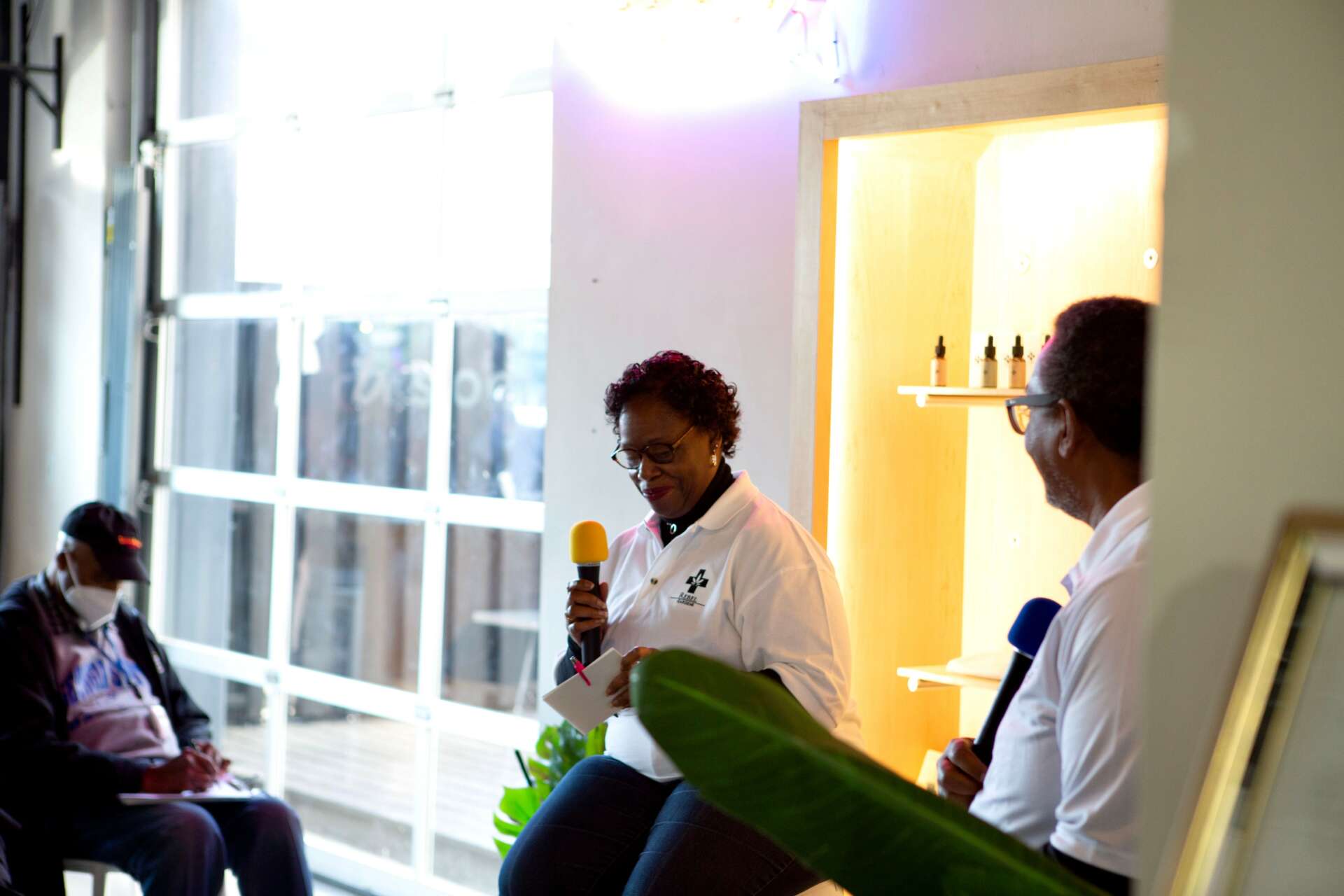
BARBARA, before we move on to more of these sorts of questions, can you take some time to bring our readers up to speed on you and what you do?
I consider myself a true southern girl, born and raised in Georgia. Like many women I wear many titles – Wife, Mom, Grandmother, Daughter, Sister, Businesswoman, a serial entrepreneur and now a “Farmer”.
At this point in my life, I see myself as a visionary on an exciting journey as I transition from Silicon Valley’s fast-paced world of tech regulatory compliance to being at the forefront of the emerging hemp industry here in Georgia.
Our journey into this industry began with personal experiences that exposed us to the benefits of hemp and its potential to transform lives. These experiences ignited my passion for exploring the potential of farming our own hemp.
By growing hemp, ourselves, it allows us the ability to maintain the quality we pride ourselves in. It is our belief that the finished products we manufacture begin with a quality foundation. From there we make and sell a variety of hemp infused products, such as: tinctures, moisturizing body lotions, roll-on pain creams, soaps, salves, pre-rolls, candles and gummies, we have something for everyone.
As CEO, I firmly believe in the potential of hemp to revolutionize industries ranging from wellness and healthcare to textiles and construction materials. Based on what we have learned this plant has the ability to encompass a greener, healthier society.
What are you most proud of and what are the main things you want potential clients/followers/fans to know about you/your brand/your work/ etc.
I am most proud that we are still in business and our customer base continues to grow. Statistically, most small businesses fail within the first five (5) years.
Since we obtained our hemp grower’s license in 2020, the number of growers licensed across the country has continued to decline along with the number of acres being used to grow hemp. We just completed our fourth growing season and next year we’ll celebrate our fifth year. Although it has been challenging, we are committed to staying the course and truly believe it not only will be beneficial to our customers but to our family legacy as well.
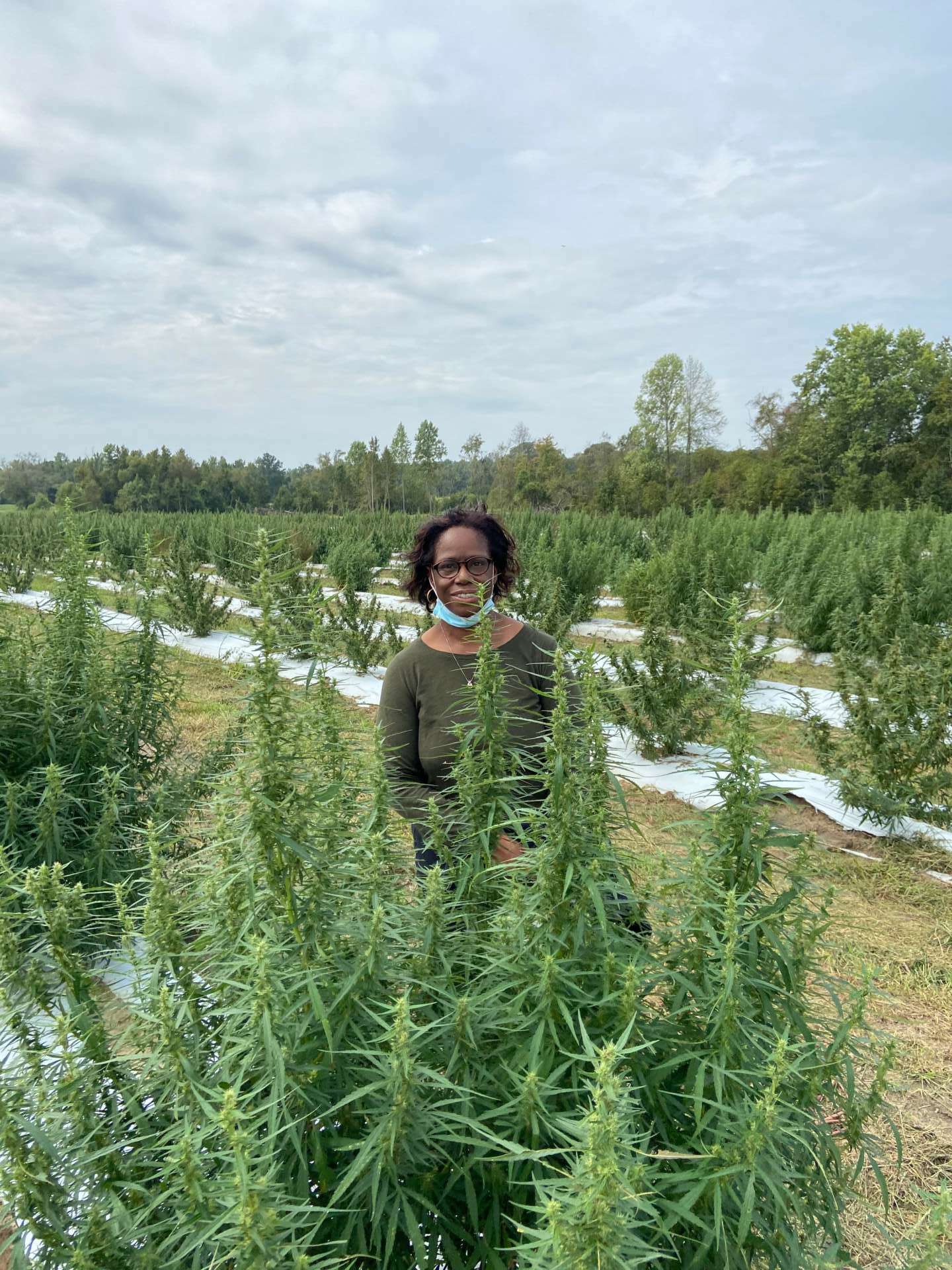
Training and knowledge matter of course, but beyond that what do you think matters most in terms of succeeding in your field?
With the legalization of hemp-derived products opening up new opportunities for entrepreneurs, we are seeing a significant boom in the hemp industry.
While I truly believe knowledge and training form the foundation of success in the hemp industry, I also believe there are other essential skills needed, such as having a combination of entrepreneurial vision, effective communication, adaptability, great customer service, strategic marketing and branding skills, financial acumen, networking abilities, and legal compliance are equally crucial.
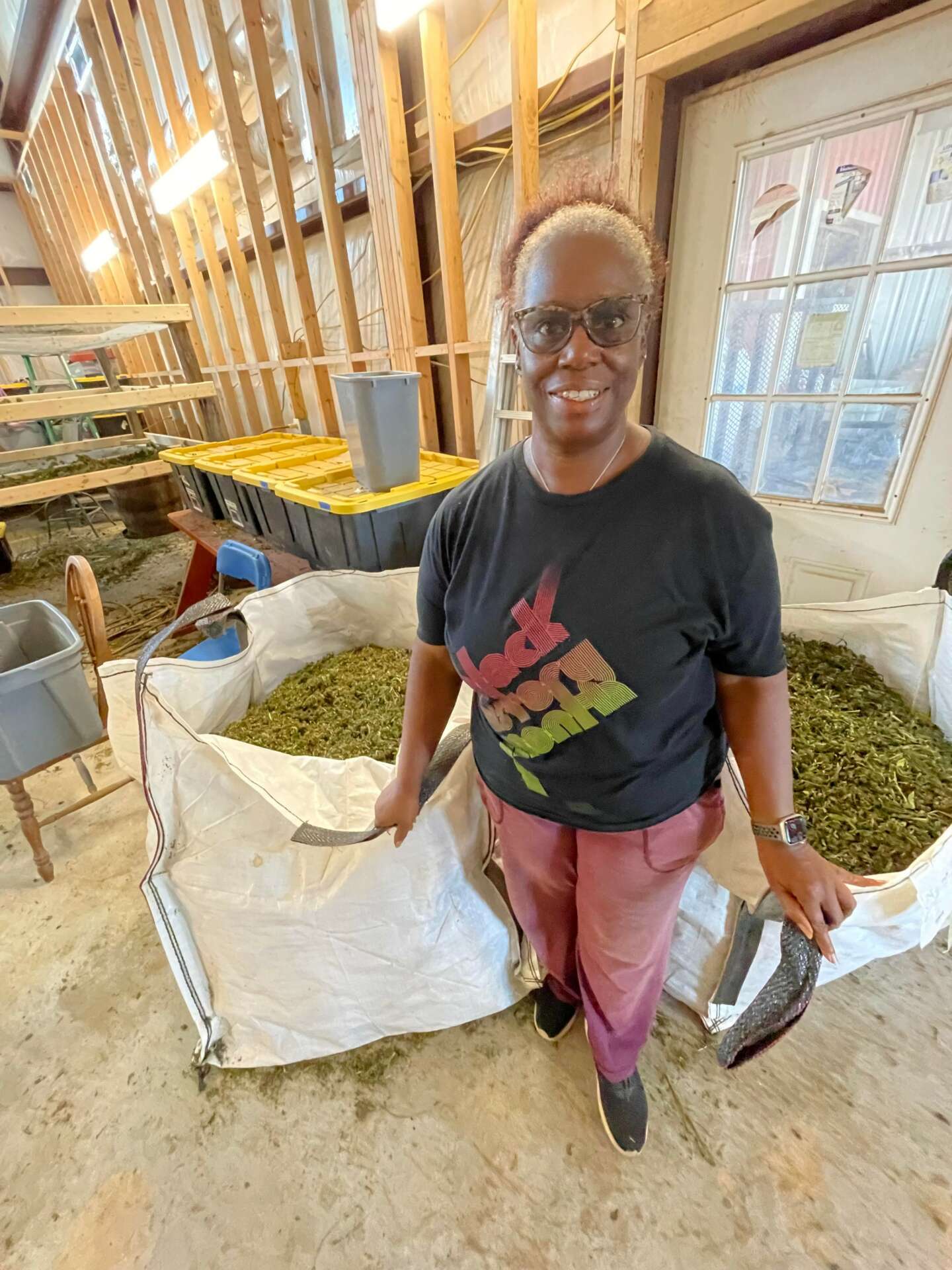
Can you tell us about a time you’ve had to pivot?
Since beginning this business there have been many pivotal moments, I will share with you a very recent incident. In 2022 I learned a very important lesson: farming is not for the weak. This would prove to be one of our more challenging years.
In lieu of planting over 500 hemp seedlings in early June as we had done previously, due to delays with the producer we planted late. The irrigation system we thought was in place had not been installed correctly, so only half of the plants were receiving water, thus preventing those that survived from sufficiently growing.
At harvest, half of the remaining plants after being tested by the state were determined to exceed the 0.3% THC threshold, in other words the plants were considered to be hot. As required by law, any plants not in compliance would have to be destroyed. Leaving us with approximately 50-75 plants.
Finally, upon delivering them for processing we were informed they did not meet the minimum weight requirements and it was suggested that instead they be used for flowers. This is not what I wanted to hear, I was disappointed and felt very deflated about our next steps. We pivoted and completed the drying process with an end goal of selling the flower we harvested.
I remembered a conversation I had with another grower, regarding their ability to infuse the flower with different flavors or terpenes profiles. I thought instead of just selling the flower in jars we would also use it to make pre-rolls for those not familiar with rolling their own.
In the end what I had initially thought was a negative, actually turned out to be a great business decision. We sold out of the pre-rolls and most of the flower, and we were introduced to a customer base we probably would not have had. This proved to be profitable and a great expansion of our product offerings.
While I’m reminded that farming can be cruel, I’m also reminded that in business you have to always be willing to be flexible and pivot when needed.
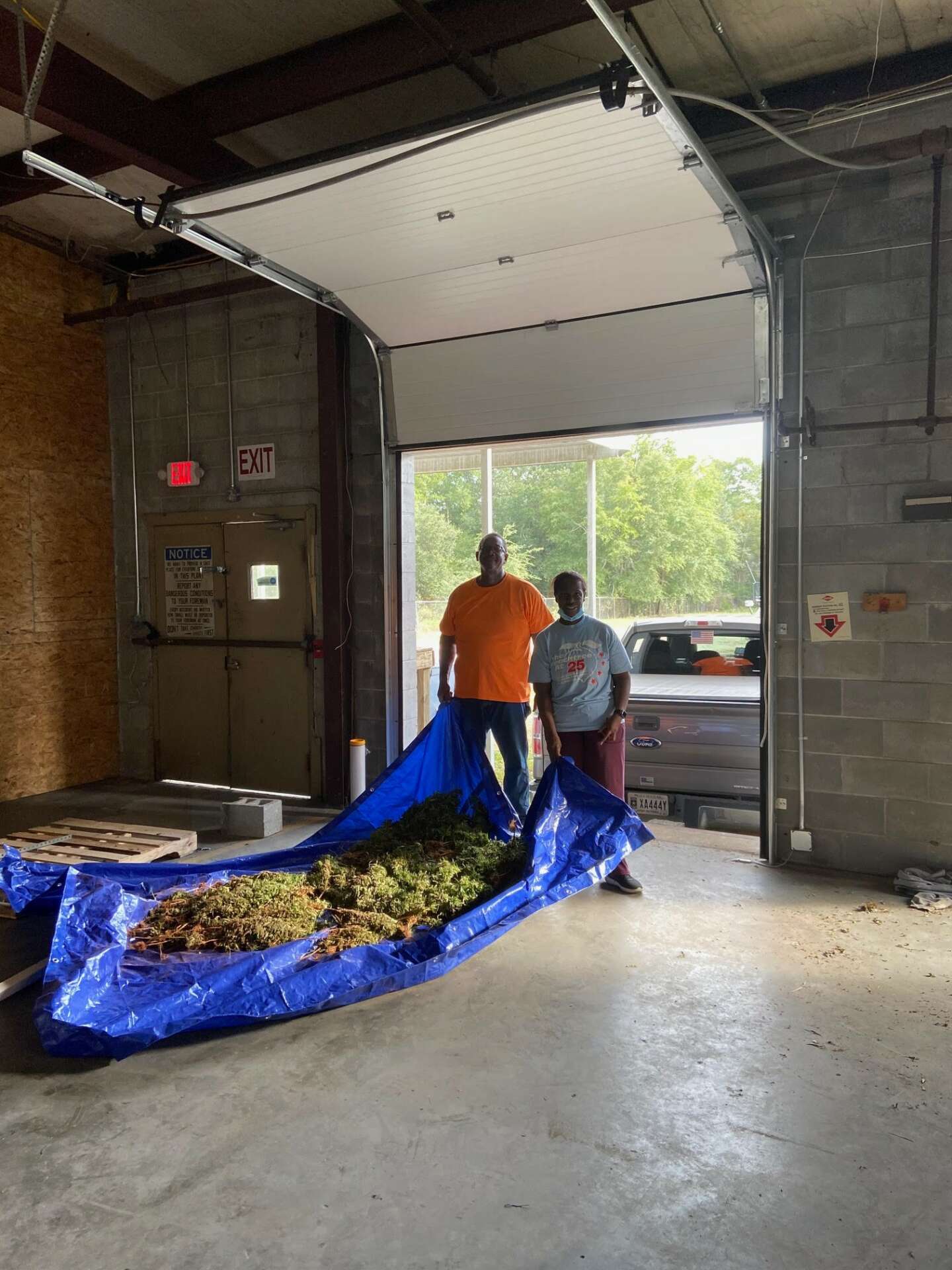
Contact Info:
- Website: www.rebel-gardens.com
- Instagram: https://www.instagram.com/rebel.gardens/
- Facebook: https://www.facebook.com/TheRebelGardens?syclid=cl00nqutuops73bnka7g&utm_campaign=emailmarketing_140189728944&utm_medium=email&utm_source=shopify_email
- Linkedin: https://www.linkedin.com/company/rebel-gardens/
Image Credits
These pictures were taken by me.


